Guest columnist Dan Winslow: Wrongly blocking solar in Shutesbury
| Published: 07-21-2023 5:00 PM |
The good news is that Massachusetts state law prioritizes the development of solar energy facilities by zoning protections that limit undue interference by local governments. The better news is that Massachusetts has more than enough potential solar energy to support the decarbonization requirements required by state law.
The bad news? Some local governments are flouting the law and impeding development of solar energy. That is really bad news for Massachusetts, a state that was, in the words of John Adams, founded on the principle of a government of laws and not of men.
Massachusetts currently ranks 49th of the 50 states in the percentage of energy generated within our state borders. The New England region generated 52% of its electricity from natural gas, according to 2022 ISO New England data.
State climate action plans released in 2022 estimate that between 27 and 34 gigawatts of solar energy will be required in 2050 to reach decarbonization goals, or more than 10 times the amount of solar currently installed in Massachusetts.
The Department of Energy Resources recently issued a report that found the state’s land parcels possess about 15 to 18 times the solar energy potential needed to fulfill decarbonization targets by 2050.
According to the report, there are three main types of solar developments: rooftop solar panels, canopy-mounted installations, and ground-mounted solar. Of these, according to the report, ground-mounted solar has the most “highly suitable” potential. It estimates that 60 GW alone could come from large-scale solar farms (requiring 1.3 acres of land or more), and 39 GW from smaller ground-mounted land parcels.
While it will not be possible to develop necessary solar farms without cutting trees, according to EPA data, solar farms offset the production of more carbon than the trees such developments replace. Indeed, removing trees for ground-mounted solar farms also creates other beneficial environmental impacts for pollinating meadows and evolving solar/ag uses.
Massachusetts zoning laws feature the “Dover Amendment” which confers special state-mandated zoning protections for agriculture, education, child care, and solar uses. G. L. c. 40A, § 3, ninth paragraph, protects solar energy systems from local regulation that is not “necessary to protect the public health, safety or welfare.” The state regulation was required to ensure that protected land uses would be free from local interference.
Article continues after...
Yesterday's Most Read Articles
 More than 130 arrested at pro-Palestinian protest at UMass
More than 130 arrested at pro-Palestinian protest at UMass
 ‘Knitting treasure’ of the Valley: Northampton Wools owner spreads passion for ancient pastime
‘Knitting treasure’ of the Valley: Northampton Wools owner spreads passion for ancient pastime
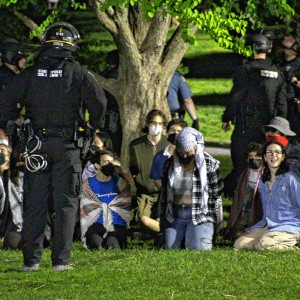 UMass student group declares no confidence in chancellor
UMass student group declares no confidence in chancellor
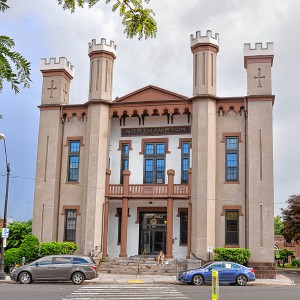 Guest columnist Josh Silver: Northampton school budget — Let’s start with kindness, accuracy and respect
Guest columnist Josh Silver: Northampton school budget — Let’s start with kindness, accuracy and respect
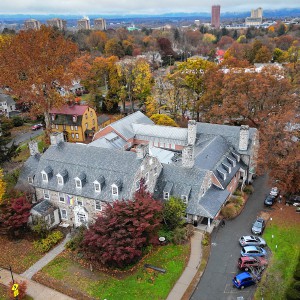 With Jones project in question, Amherst won’t sign lease for temporary digs
With Jones project in question, Amherst won’t sign lease for temporary digs
 UMass graduation speaker Colson Whitehead pulls out over quashed campus protest
UMass graduation speaker Colson Whitehead pulls out over quashed campus protest
The New England Legal Foundation recently supported a legal challenge against the city of Waltham’s attempt to thwart ground-mounted solar development that would cover 413,600 square feet. The case was decided by the Massachusetts Supreme Judicial Court in Tracer Lane II v. City of Waltham.
In Tracer Lane, the SJC held that when evaluating an ordinance or bylaw’s validity under the Dover Amendment, courts should balance the interest that the ordinance or bylaw advances and the impact on the protected use. For people who believe that climate change creates an existential risk to the planet, the balance should tip in favor of solar energy, since extinction is a weighty comparison to any other possible local interest.
Significantly, the court noted in Tracer Lane that the local law restricted solar to all but 1% or 2% of Waltham’s land area, which was prohibited. That number is significant because Shutesbury’s solar bylaw prohibits ground-based solar projects in about 99% of town today, leaving less than 1% developable.
The pending litigation between the town of Shutesbury and PureSky Energy (formerly AMP Energy) should be resolved before the town wastes more valuable resources on a fool’s errand of litigation. Shutesbury’s actions are more outrageous when one considers that the target of town interference is a local intergenerational family business that has proven to be a responsible steward of the land and has conserved over 2,500 acres, 84% of the forestland it owns in Shutesbury, to host a solar development on fewer than 190 acres.
Litigation consumes scarce town tax dollars that otherwise could be used for teachers, police, firefighters, infrastructure, and other important and underfunded local needs. By committing town resources to interfering with solar energy development in the face of climate change, Shutesbury has chosen the side of the climate change deniers.
Worse, obstructing solar development is cheating the taxpayers out of hundreds of thousands of new tax dollars for the town. If a court needs to balance the harms in the Shutesbury solar litigation, measuring existential threat and statewide decarbonization requirements against local fearmongering will make the outcome a foregone conclusion.
Here’s hoping that reason, and justice, prevail.
Dan Winslow is an Amherst native who now serves as president of the New England Legal Foundation, a nonpartisan, nonprofit organization that advocates for free enterprise, property rights, rule of law, and inclusive growth. www.newenglandlegal.org.

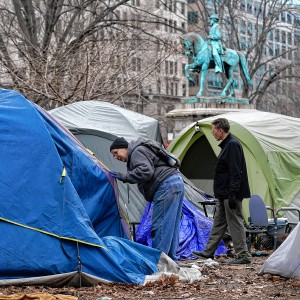 Columnist Olin Rose-Bardawil: American dream out of reach for many
Columnist Olin Rose-Bardawil: American dream out of reach for many Tony Giardina: Faith and inclusion
Tony Giardina: Faith and inclusion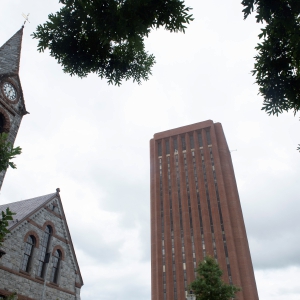 Martha Jorz: Stop supporting UMass and Raytheon
Martha Jorz: Stop supporting UMass and Raytheon Doron Goldman: Israel's situation is complicated
Doron Goldman: Israel's situation is complicated
